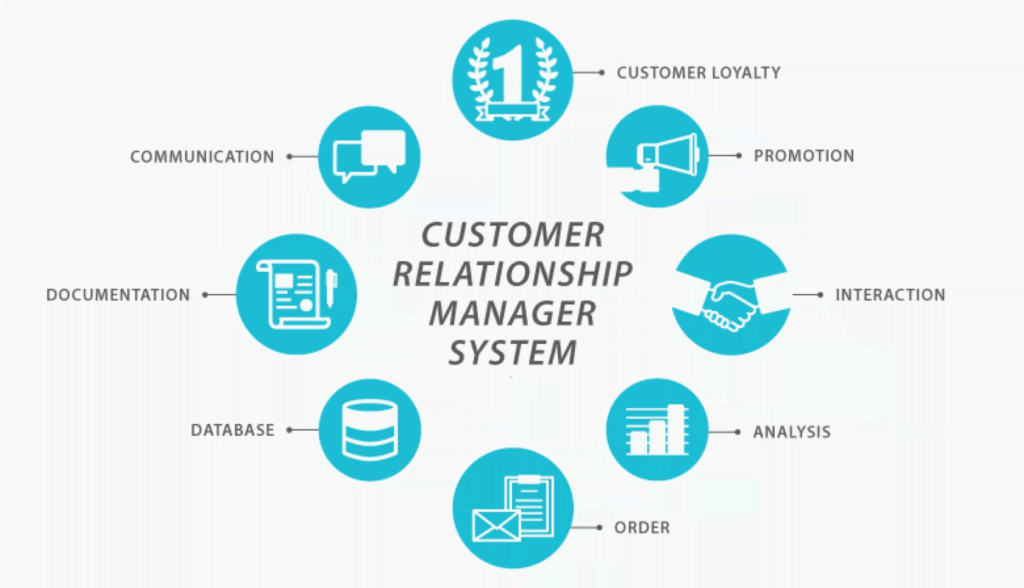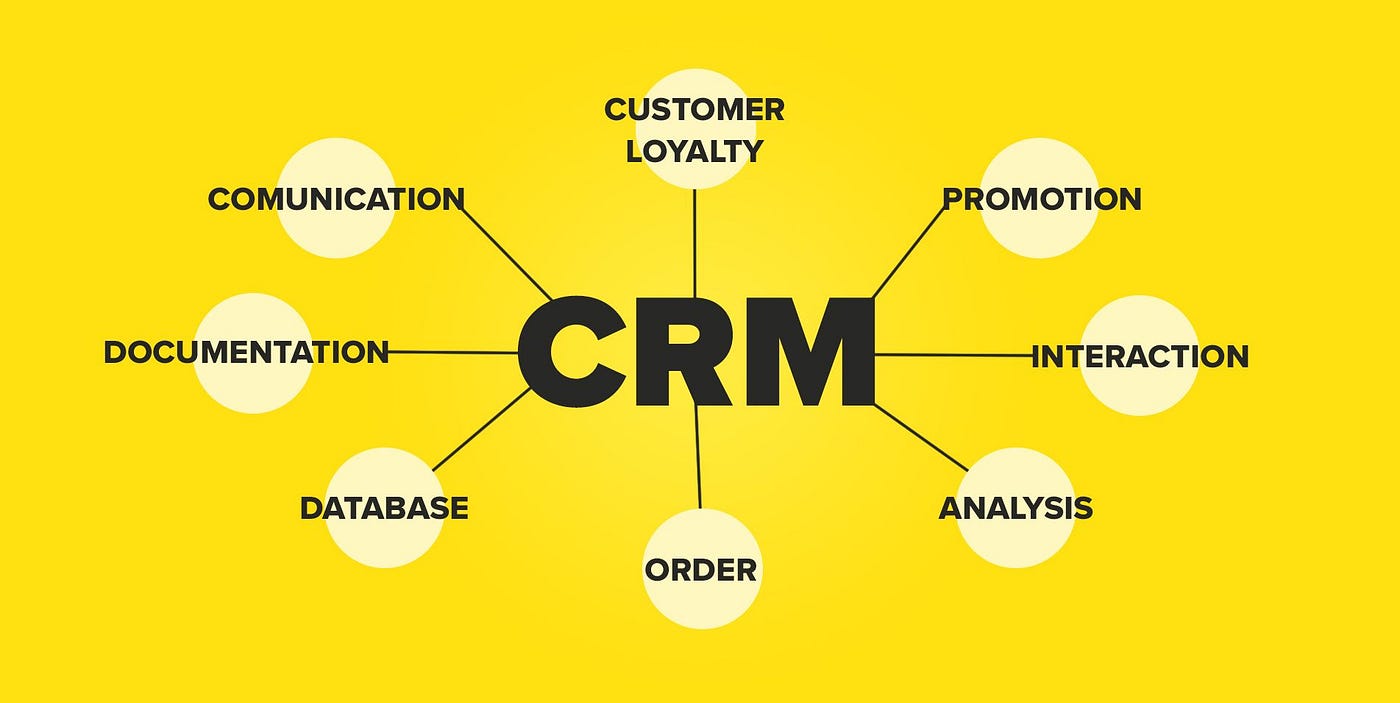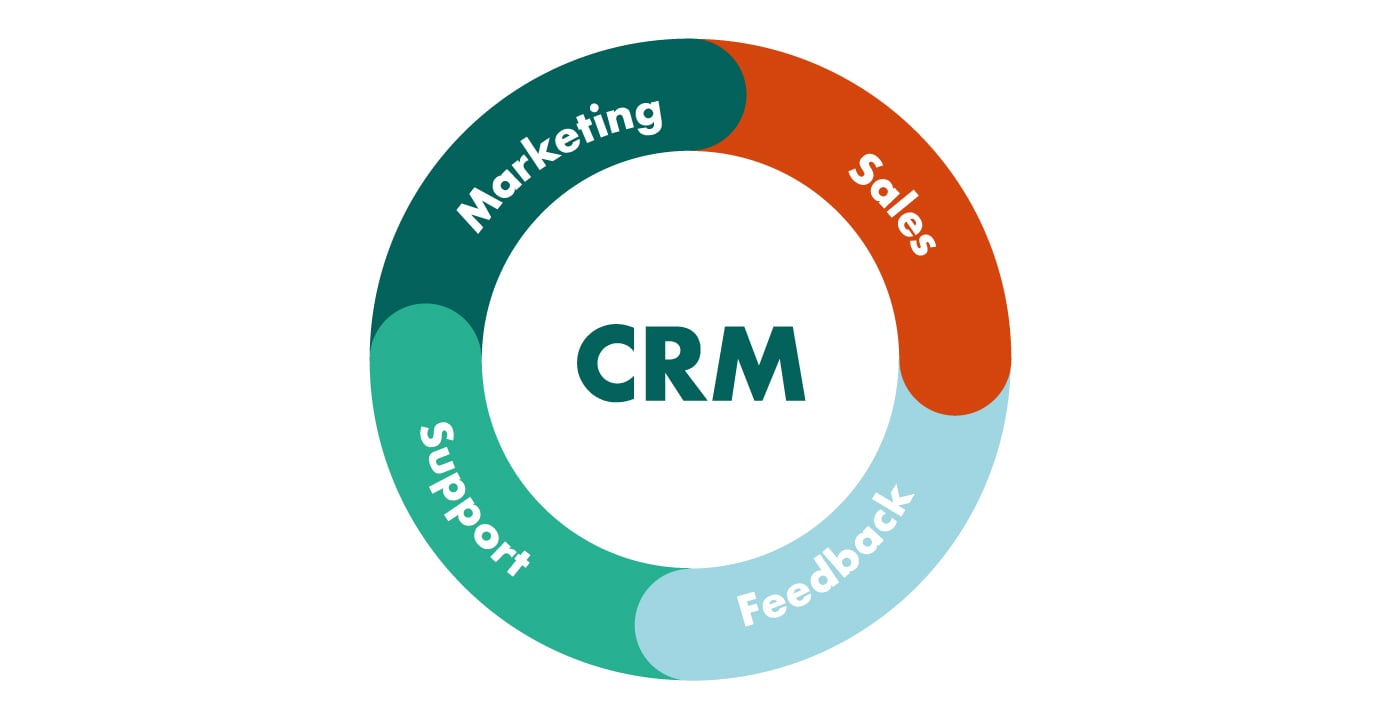CRM, or Customer Relationship Management, is a system for managing a company’s interactions with current and potential customers. It helps businesses improve relationships, streamline processes, and increase profitability.
Every business aims to build strong relationships with its customers. CRM tools make this task easier by organizing, tracking, and managing customer information. These systems provide insights into customer behavior and preferences. This helps businesses tailor their services and marketing efforts.
With CRM, businesses can improve customer satisfaction and loyalty. Whether you run a small business or a large corporation, understanding CRM is crucial. It can help you manage customer data and boost your business growth. Let’s explore the benefits and features of CRM systems.
Also Read
- Publitio Lifetime Deal: Unlock Unlimited Media Hosting Today!
- Capcut Pro Pricing: Unlock Premium Features for Less
- Revolut Business Pricing: Unlock the Best Plans for Your Business
Types Of Crm Systems
Customer Relationship Management (CRM) systems come in various types. These types help businesses in different ways. Each type offers unique features. They cater to specific needs. Let’s explore the main types of CRM systems.
Operational Crm
Operational CRM focuses on daily business operations. It helps manage customer interactions. This type includes sales, marketing, and service automation. It streamlines processes. Employees can track customer activities. They can follow up on leads. This boosts efficiency. It also improves customer satisfaction.
Analytical Crm
Analytical CRM analyzes customer data. It helps businesses understand customer behavior. This type includes data mining and pattern recognition. It provides insights. Businesses can make informed decisions. They can identify trends. They can predict future behavior. This leads to better strategies. It enhances customer retention.
Collaborative Crm
Collaborative CRM focuses on communication. It helps share customer information across departments. This type includes interaction management. It ensures all teams work together. They can offer a unified customer experience. This improves coordination. It strengthens customer relationships. It also resolves issues faster.

Credit: cyberhoot.com
Key Features Of Crm
Customer Relationship Management (CRM) systems offer a wide range of features that help businesses manage their interactions with customers. These features streamline processes and improve customer satisfaction. Let’s explore some key features of CRM systems that can benefit your business.
Contact Management
Contact management is at the heart of any CRM system. It helps you store and organize customer information. This includes names, addresses, phone numbers, and email addresses.
- Centralized database for all contact information
- Easy access to customer details
- Segmentation for targeted marketing campaigns
With contact management, you can ensure all customer data is up-to-date. This helps your team provide personalized service.
Sales Automation
Sales automation features reduce manual tasks for your sales team. This allows them to focus on closing deals.
- Automated follow-up emails
- Task reminders for sales reps
- Pipeline management tools
Sales automation helps you track progress and manage leads effectively. It ensures no opportunity is missed.
Customer Support
Customer support features help you address customer issues quickly. This improves customer satisfaction and loyalty.
- Ticketing system for tracking issues
- Knowledge base for common questions
- Live chat and email support options
With robust customer support tools, you can resolve issues efficiently. This leads to happier customers and better retention rates.
Benefits Of Using Crm

CRM (Customer Relationship Management) systems provide several benefits to businesses of all sizes. These systems help manage interactions with current and potential customers. By using CRM, you can build strong relationships, enhance your sales process, and manage your data more effectively.
Improved Customer Relationships
Building and maintaining strong customer relationships is vital. A CRM system helps you track customer interactions, preferences, and feedback. This detailed information allows for personalized communication. Customers feel valued and understood. Happy customers are loyal customers.
Increased Sales Efficiency
Sales teams often face challenges in organizing leads and closing deals. A CRM system can streamline this process. It provides tools to manage leads, track follow-ups, and analyze sales data. This results in increased sales efficiency. Your team can focus more on selling and less on administrative tasks.
| Feature | Benefit |
|---|---|
| Lead Management | Track and prioritize leads easily |
| Sales Pipeline | Visualize and manage sales stages |
| Reporting | Gain insights from sales data |
Enhanced Data Management
Managing customer data manually can be overwhelming. A CRM system centralizes all customer information in one place. This ensures data is accessible, secure, and up-to-date. It also helps in creating detailed reports and analysis. Enhanced data management leads to better decision-making. You can identify trends and adjust strategies accordingly.
In conclusion, leveraging a CRM system can transform how you interact with customers, streamline your sales processes, and manage your valuable data. It’s an essential tool for any business aiming for growth and long-term success.
Choosing The Right Crm
Choosing the right CRM for your business is essential. A good CRM system helps manage your customer relationships effectively. It improves communication and boosts sales. But how do you choose the right one? Let’s break it down step by step.
Assessing Business Needs
First, understand your business needs. What do you need a CRM for? Is it to manage customer data, track sales, or improve customer service? Make a list of your requirements. Knowing what you need helps you find a CRM that fits.
Evaluating Crm Options
Next, research different CRM options. Look for features that match your needs. Some CRMs focus on sales, others on customer support. Read reviews and ask for recommendations. Try demos to see how each CRM works.
Budget Considerations
Finally, consider your budget. CRMs come in various price ranges. Some offer free plans with basic features. Others have advanced features at a higher cost. Choose a CRM that fits your budget without compromising on essential features.
Implementing A Crm System
Implementing a CRM system can boost your business efficiency and customer satisfaction. This process involves several critical steps to ensure success. Below are the key aspects of implementing a CRM system.
Planning And Strategy
The first step is to create a clear planning and strategy. Identify your business needs and goals. Know what you want to achieve with the CRM system. This could be improving customer service, increasing sales, or streamlining operations.
Create a detailed plan. Include timelines, budget, and resources. Make sure all stakeholders are involved. Their input is crucial for successful implementation.
Training And Onboarding
Proper training and onboarding are essential. Your team must understand how to use the CRM system. Arrange training sessions. Provide comprehensive guides and resources.
Continuous support is important. Offer help desks or online support. This ensures your team can resolve any issues quickly.
Integration With Existing Systems
Ensure the CRM system integration with existing systems. It should work well with your current tools and software. This avoids data silos and ensures a smooth workflow.
Use APIs or third-party tools for integration. Test the integration thoroughly. Ensure data flows seamlessly between systems.
Follow these steps to implement a CRM system successfully. This will enhance your business operations and customer relationships.

Credit: medium.com
Challenges In Crm Adoption
Customer Relationship Management (CRM) systems can transform how businesses interact with customers. Yet, adopting CRM technology comes with its own set of challenges. Understanding these challenges can help businesses prepare and succeed.
Data Quality Issues
One of the main hurdles in CRM adoption is data quality. Poor data quality can lead to inaccurate insights and poor decision-making. Some common data quality issues include:
- Duplicate records
- Incomplete data
- Outdated information
Ensuring data accuracy requires regular audits and a clear data management strategy.
User Resistance
User resistance is another significant challenge. Employees may be reluctant to adopt new systems. Reasons for resistance include:
- Lack of understanding
- Fear of change
- Perceived complexity
Training and clear communication can help mitigate this issue. Demonstrating the benefits of CRM can also reduce resistance.
Cost And Roi Concerns
Businesses often worry about the cost and return on investment (ROI) of CRM systems. Implementing CRM can be expensive, and calculating ROI can be tricky. Key concerns include:
- Initial setup costs
- Ongoing maintenance expenses
- Time required to see benefits
To address these concerns, businesses should:
- Set clear goals for CRM use
- Monitor performance metrics
- Regularly review ROI
Understanding these challenges helps in better planning and successful CRM adoption.
Future Trends In Crm
The future of Customer Relationship Management (CRM) is evolving rapidly. Businesses are constantly seeking ways to enhance customer experiences and streamline operations. Let’s explore some of the emerging trends in the CRM space.
Ai And Automation
Artificial Intelligence (AI) and automation are transforming the CRM landscape. AI can analyze vast amounts of customer data to provide insights. This helps in predicting customer behavior and preferences. Automation, on the other hand, reduces repetitive tasks. This allows sales teams to focus on building stronger customer relationships.
Some key benefits of AI and automation in CRM include:
- Improved customer segmentation
- Enhanced lead scoring
- Automated customer support through chatbots
Mobile Crm
With the rise of mobile devices, Mobile CRM is gaining importance. Sales teams can access customer information on the go. This improves productivity and responsiveness. Mobile CRM allows for real-time updates and better collaboration.
Some advantages of Mobile CRM include:
- Instant access to customer data
- Real-time notifications for new leads
- Enhanced collaboration with team members
Personalization
Personalization is key to customer satisfaction. CRMs are now equipped to offer personalized experiences. This means tailoring interactions based on customer preferences and history. Personalization helps in building loyal customer relationships.
Benefits of personalization in CRM:
- Increased customer loyalty
- Higher engagement rates
- Better customer retention
The future of CRM is exciting. AI, Mobile CRM, and Personalization are leading the way. Businesses that embrace these trends will thrive.

Credit: www.superoffice.com
For more information about visit now.
Frequently Asked Questions
What Is Crm In Simple Terms?
CRM stands for Customer Relationship Management. It involves strategies and tools to manage customer interactions and data. Its goal is to improve business relationships, streamline processes, and increase profitability.
Why Is Crm Important For Businesses?
CRM helps businesses maintain customer relationships, track sales, and improve customer service. It centralizes customer data, making it easier to manage and analyze, ultimately boosting sales and customer satisfaction.
How Does Crm Software Work?
CRM software collects and organizes customer data from various channels. It provides tools for managing interactions, tracking sales, and automating marketing tasks. This helps businesses understand customer needs and improve service.
What Are The Key Features Of Crm Systems?
Key CRM features include contact management, sales tracking, customer service automation, and reporting. These features help businesses manage customer data, automate processes, and gain insights to improve customer relationships.
Conclusion
CRM helps businesses build strong customer relationships. It improves communication and trust. With CRM, you manage interactions efficiently. It keeps customer data organized. This boosts satisfaction and loyalty. Implementing CRM can streamline your processes. This saves time and increases productivity.
Understanding CRM is essential for business growth. Start using CRM today. You’ll see positive changes. Your customers will thank you.








